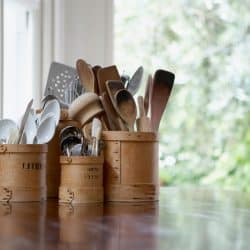Whether you're an avid chef, a beginner in the kitchen, or somewhere in between, you can benefit from wearing an apron. However, do you know when you should take your apron off? We've done the research for you and compiled a list of times you should remove your apron.
There are times when you need to take off your apron for sanitary reasons. Never wear it to the bathroom. When leaving the kitchen, you should remove your apron. You especially need to take off your apron before taking out the trash or participating in other particularly unsanitary activities.
Aprons have multiple purposes in both personal kitchens and professional settings. Keep reading to find out why you should wear an apron, how to properly store your apron, what not to wear in the kitchen, and more.
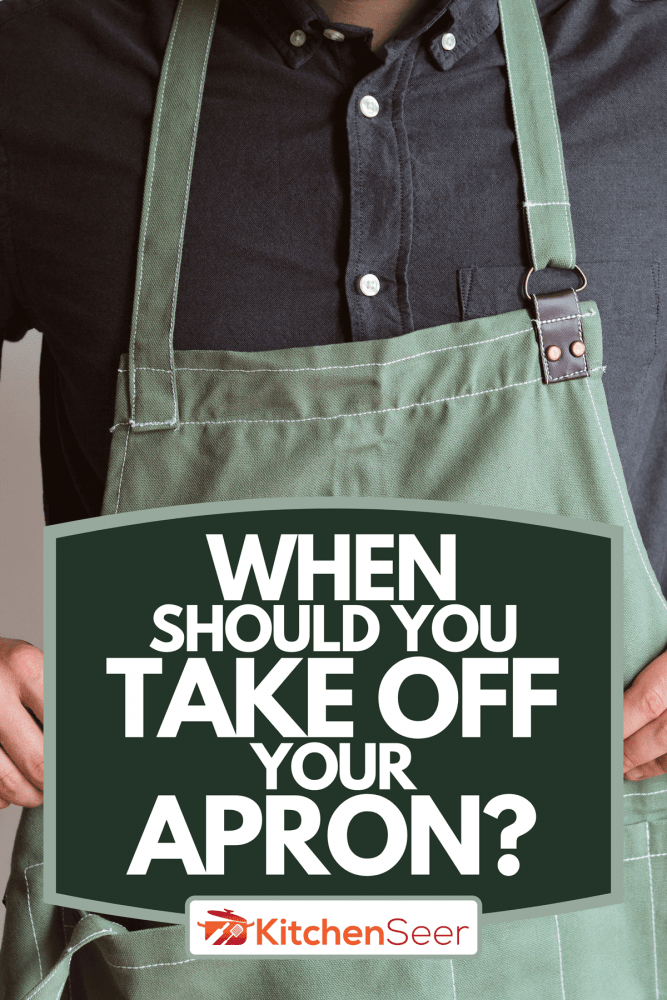
When Should You Take off Your Apron?
Since aprons are typically worn during food preparation, it's important to keep them clean. While you should take off your apron any time you leave the food preparation or serving area, it is especially important to remove it before the following activities:
- Going to the restroom
- Taking out the trash
- Eating
- Smoking
This is because bacteria can cling to your apron and transfer to the food, potentially causing someone to get sick after consumption.
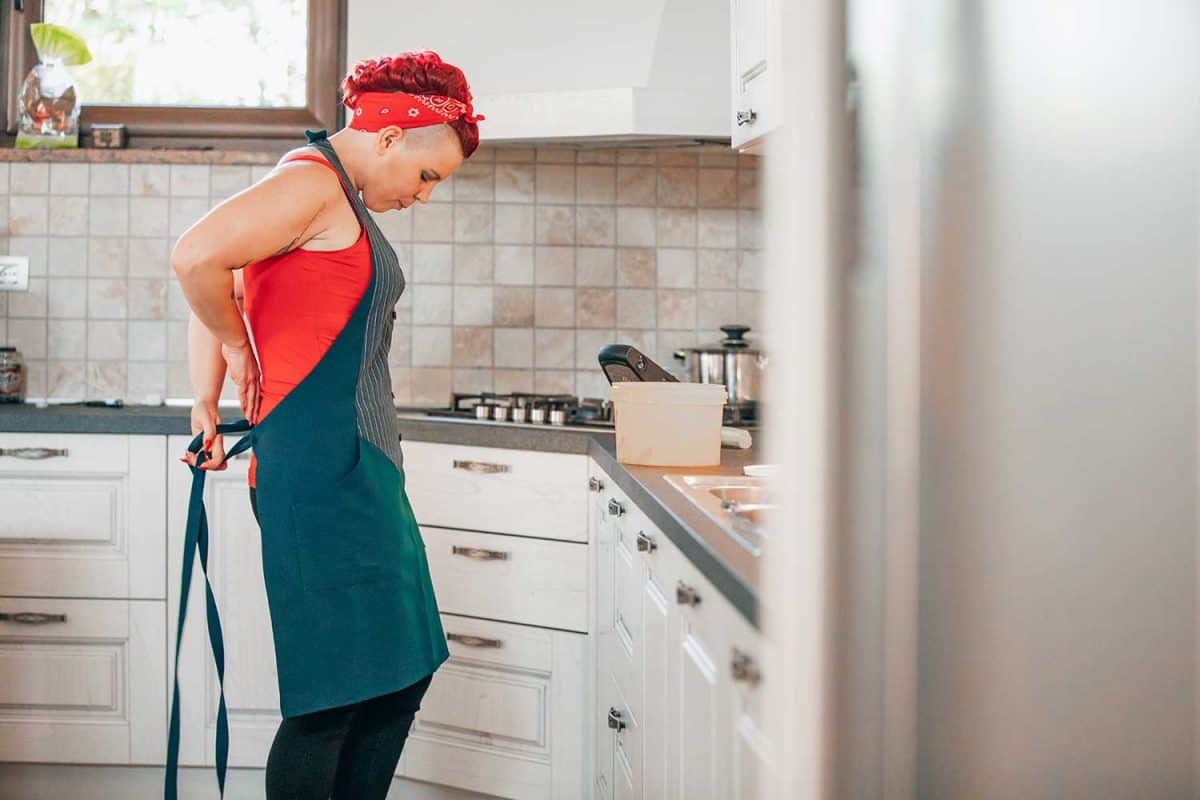
What is the Purpose of an Apron?
If you've ever eaten at a restaurant or purchased fast food, you've probably seen the kitchen workers wearing aprons. Likewise, if you have someone in your family, such as a parent or grandparent, who loves to cook, you may have seen them wearing an apron. It has become so commonplace that you may not have given it much thought. That being said, do you know the purpose of wearing an apron? Some common reasons include:
- Keeping clothes clean
- Wiping your hands
- Avoiding cross-contamination of food from clothes
Keeping Clothes Clean
When cooking or handling food, there is a big chance that you'll get spills or ingredients on your clothes. Have you ever used flour without an apron? You probably had it all over your clothes. If you're wearing nice clothes and don't want to stain them or get them messy, aprons can help prevent that.
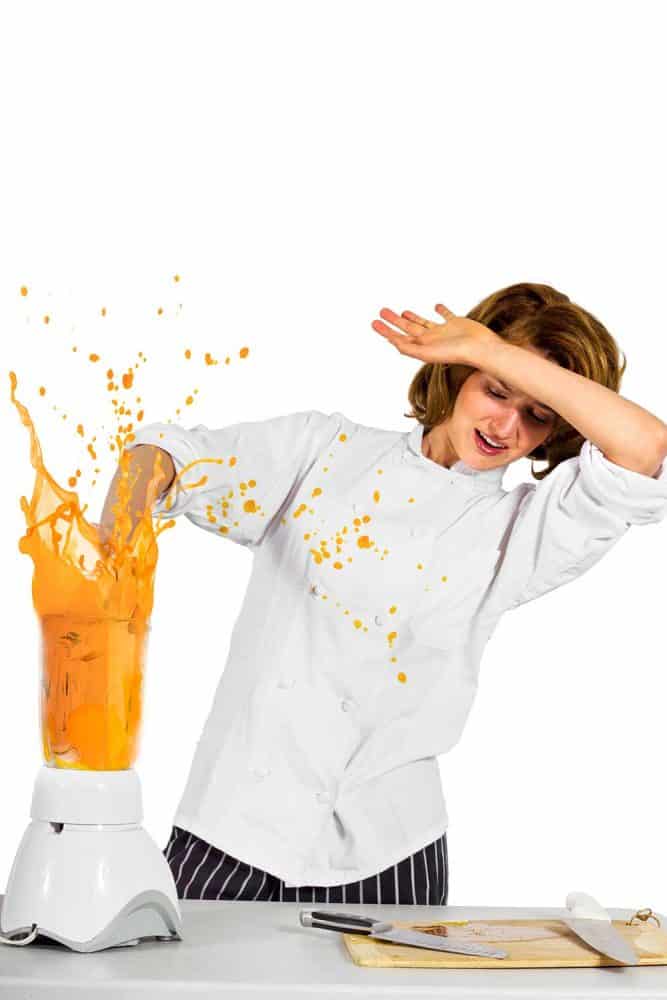
Wiping Your Hands
Wiping your hands is something you really don't think about while you're in the kitchen. If you wash your hands, do you reach for a dish towel, or do you dry your hands on your pants? What about if you get something on your hands, such as flour, sugar, or liquid? Do you have a tendency to just wipe in on your pants?
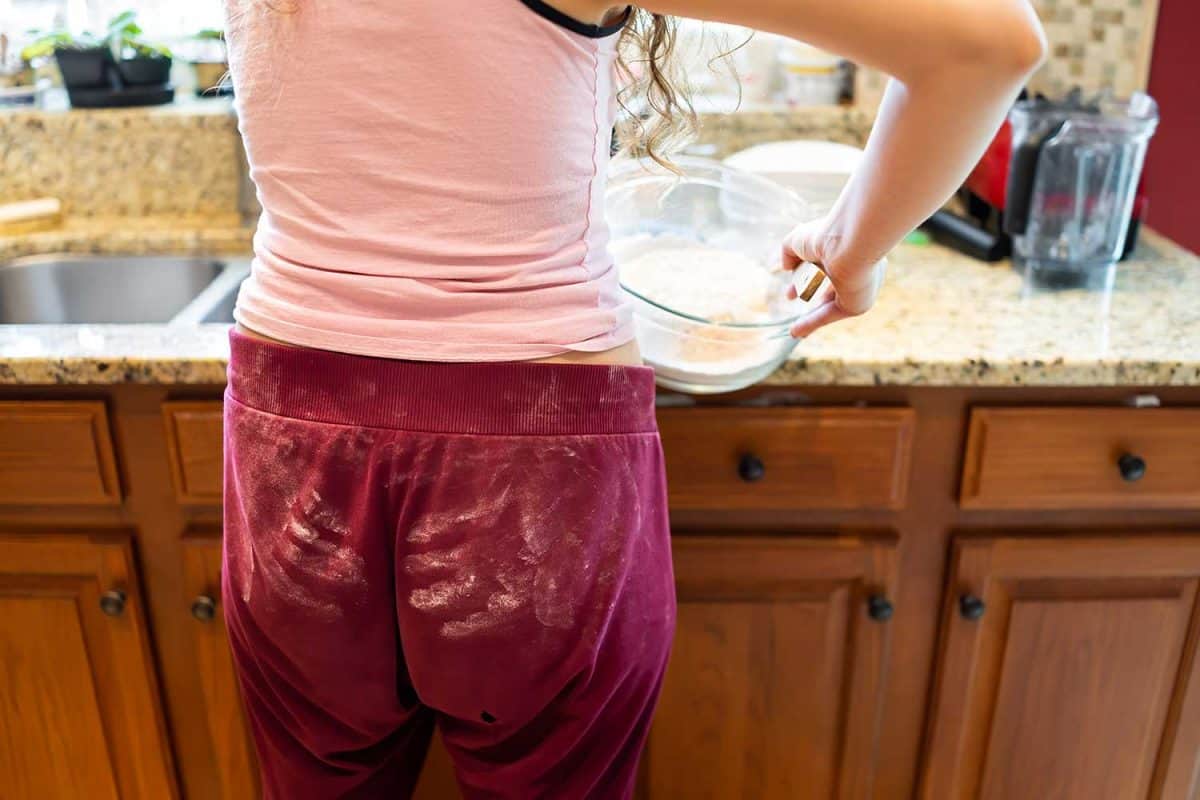
While this may seem like a harmless act, it can be very unsanitary. Think about where your pants have been. You wear them to the bathroom. You wear them outside, and if you have pets, they probably jump on your leg to greet you. All these things leave germs clinging to your clothes.
When you wipe your hands on your pants, those germs transfer to your hands; then your hands go right back to cooking. If you're wearing a clean apron, you can forget about searching for the dish towel and just dry or wipe your hands on your apron.
Avoiding Cross-Contamination from Clothes
As mentioned above, your clothes, even if you think they are clean, carry many hidden pathogens. If you are not wearing an apron, there is more of a chance that your clothing will come into contact with cooking ingredients.
Let's look at this example: Say you are reaching across the stove. Your shirt brushes against the pot of soup you are brewing. In turn, dust and dander or maybe even some cat hair fall into the soup. If you were wearing a clean apron, it would have shielded the soup from your shirt.
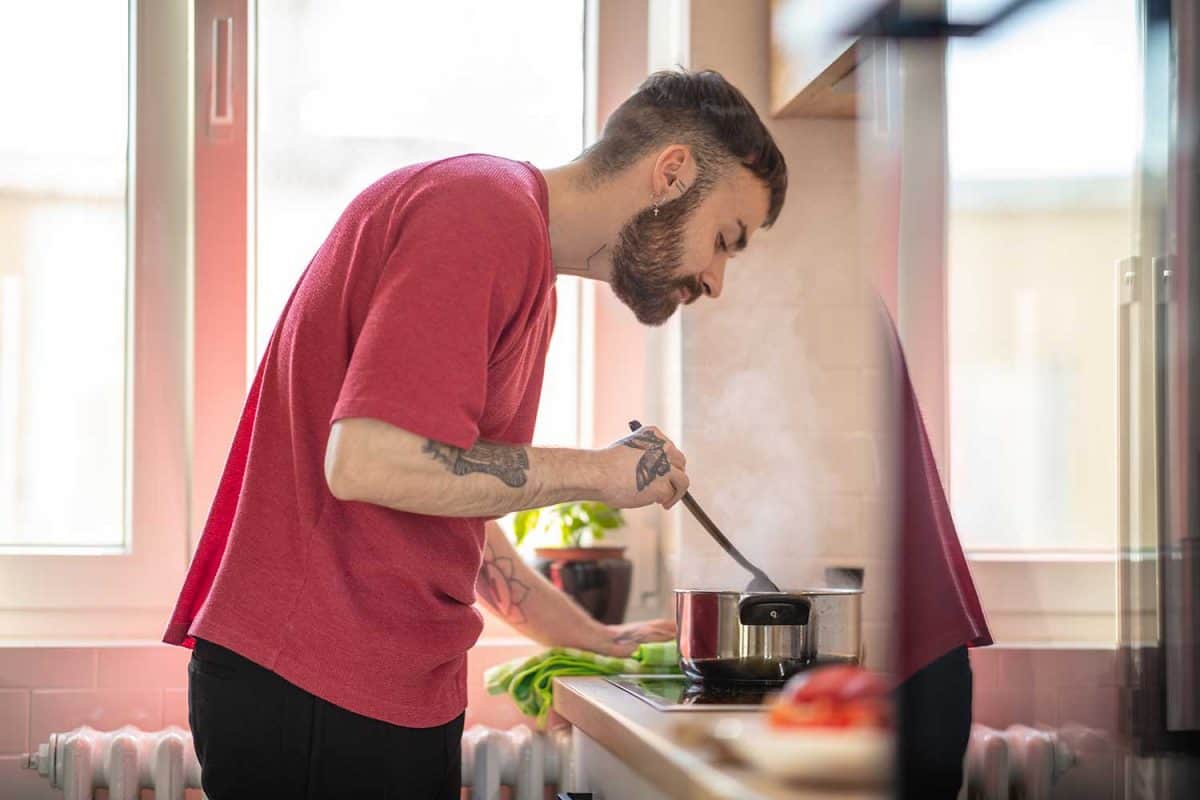
Can You Wash an Apron in a Washing Machine?
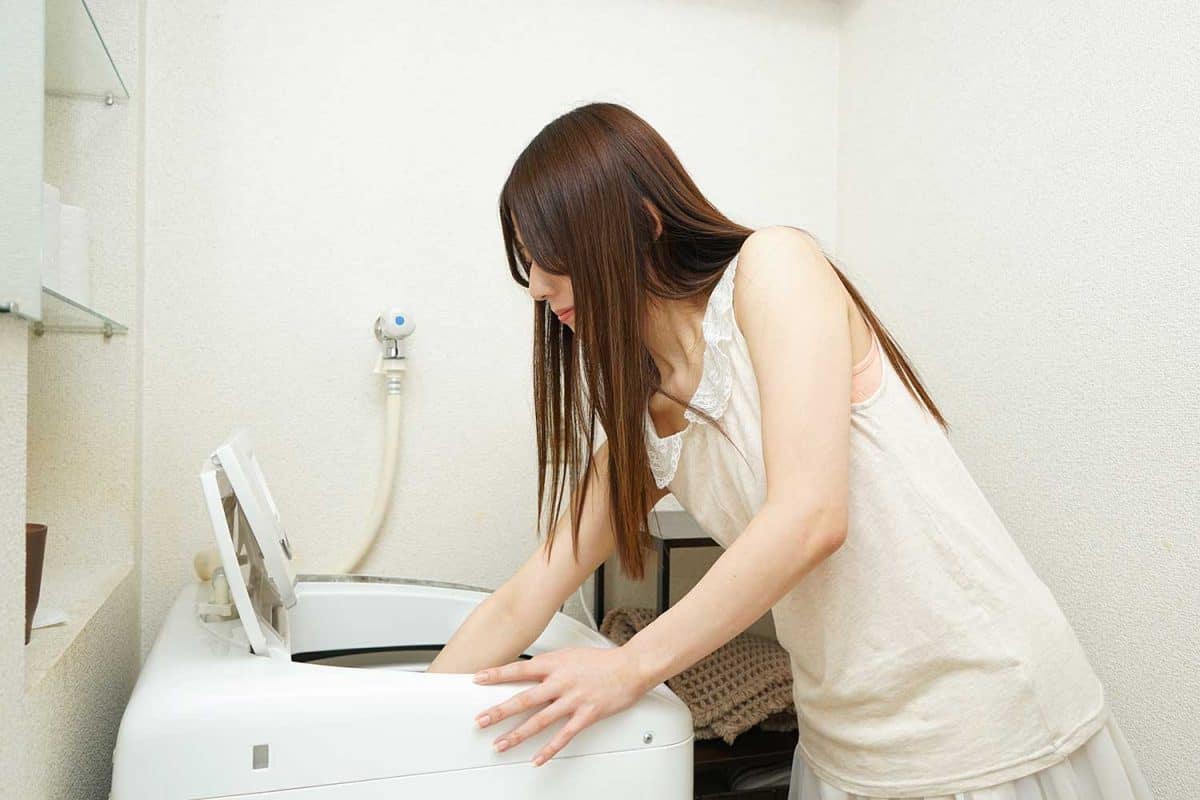
It's extremely important to keep your apron clean. Therefore, you should probably wash it about every other day, depending on how messy it gets. Before washing, you'll need to know if your apron can go in the washing machine. Most aprons are machine washable; however, it really depends on the fabric. Before tossing your apron in the washer, check the inner tag for washing instructions.
Where Do You Keep an Apron?
When storing aprons, you can fold them and neatly store them in a drawer. You can also hang aprons on a rack in your kitchen. However, when storing aprons in the open, they are more susceptible to germs. One great place to store your aprons is on a hook inside your pantry. If placing them in a drawer, watch this video to learn how to properly fold your aprons.
What is a Traditional Chef's Uniform?
The origins of the traditional chef's uniform date all the way back to the 19th century. It consists of a tall, white hat called a toque blanche, a white double-breasted jacket featuring knotted cloth buttons, and a loose-fitting pair of pants featuring a houndstooth pattern.
What's the Difference Between a Waist Apron and a Bib Apron?
When choosing an apron, you can go with either a waist apron or a bib apron. Before making your choice, know the difference between the two.
Waist Apron
As the name implies, a waist apron only ties around your waist and covers the front of your pants. It typically doesn't go all the way to the knees. Unlike the bib apron, it isn't good for protecting shirts from spills. Waist aprons are beneficial for servers who need to store money, order pads, and straws in their pockets.
Click here to see this waist apron on Amazon.
Bib Aprons
Bib aprons tie both around the neck and around the waist. They cover all the way from your collar down to approximately your knees. Bib aprons are great for cooks, helping keep their clothes mess-free while also protecting food from contamination.
Click here to see this stylish bib apron on Amazon.
What Should You Not Wear While Cooking?
For safety and sanitation purposes, there are some things you should not wear while cooking:
- Baggy clothes
- Dirty clothes
- Jewelry
- Watches
Baggy clothes are dangerous in the kitchen because they are more likely to fall into a flame and catch on fire. Likewise, loose clothing may fall into food or cooking ingredients. Jewelry is usually unsanitary and can transfer bacteria to food. It also poses a safety risk because it could get caught in kitchen equipment.
In addition to things you shouldn't wear while cooking, there are some things you should wear. Wear a hair net or pull hair back into a ponytail to keep it out of food. Hats are also acceptable. Men with beards should also wear beard nets to keep any stray hairs from falling into food.
In Closing
Aprons are stylish and can be fun to wear. They also keep our clothes clean while cooking and prevent contamination of food and utensils. Aprons should never be worn outside the food preparation and serving area, especially when smoking, using the restroom, or taking out the garbage. By following the safety guidelines mentioned above, you can enjoy cooking while also staying clean and safe.
If you need ideas for aprons that your mom will love, check out this blog post. Don't forget to give her some recipes to try once she gets her new apron. Check out this blog post for some yummy bread recipes that she will love cooking and you will love eating!




![Portrait of a handsome young man standing at his food stall with a box of ingredients, Should An Apron Be Lined? [What You Need To Know]](https://kitchenseer.com/wp-content/uploads/2021/06/Portrait-of-a-handsome-young-man-standing-at-his-food-stall-with-a-box-of-ingredients-250x250.jpg)


![Unknown man wearing fancy apron with arms crossed, 13 Novelty Aprons For Men [Gift Ideas]](https://kitchenseer.com/wp-content/uploads/2020/05/Unknown-man-wearing-fancy-apron-with-arms-crossed-250x250.jpg)
